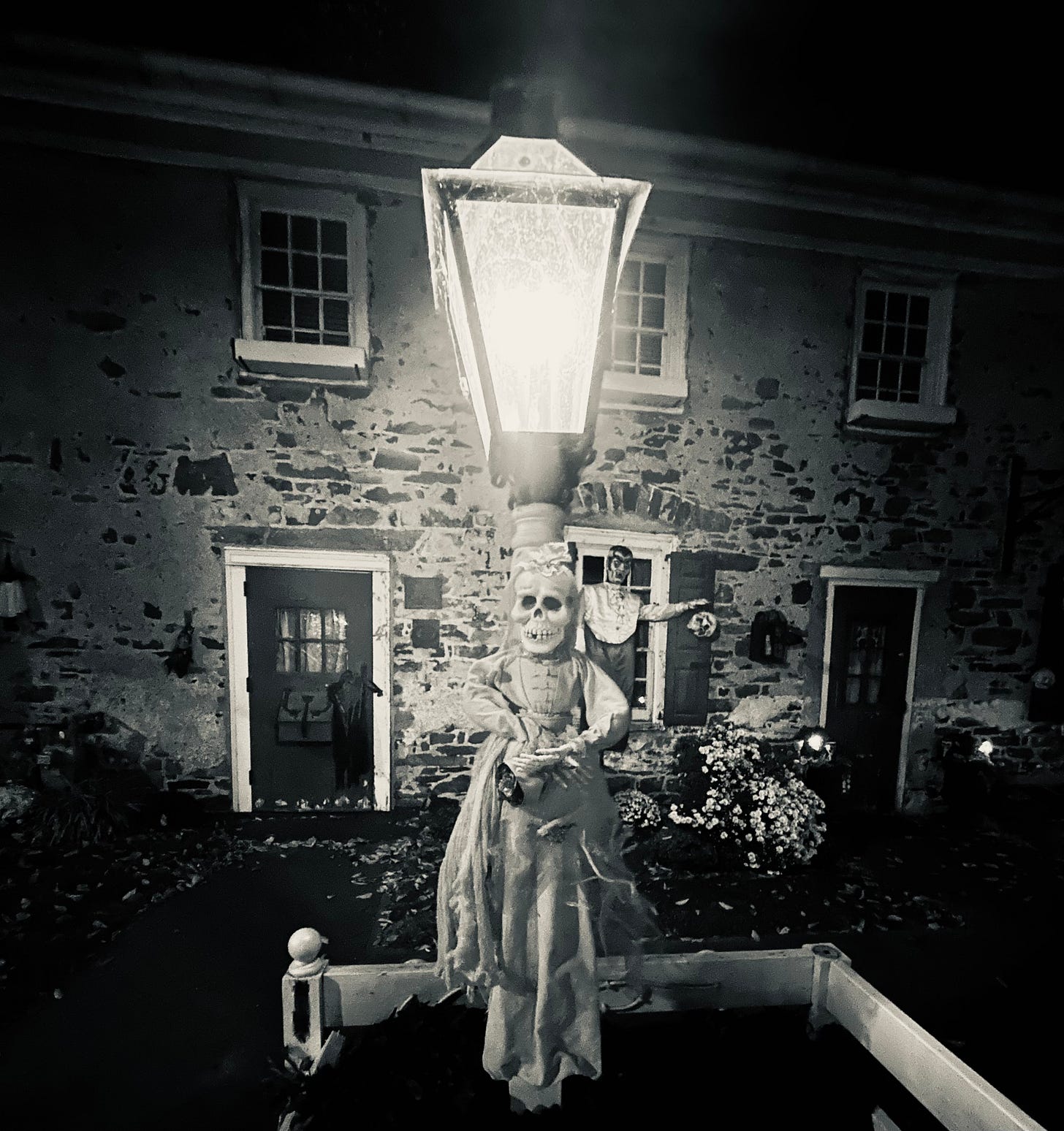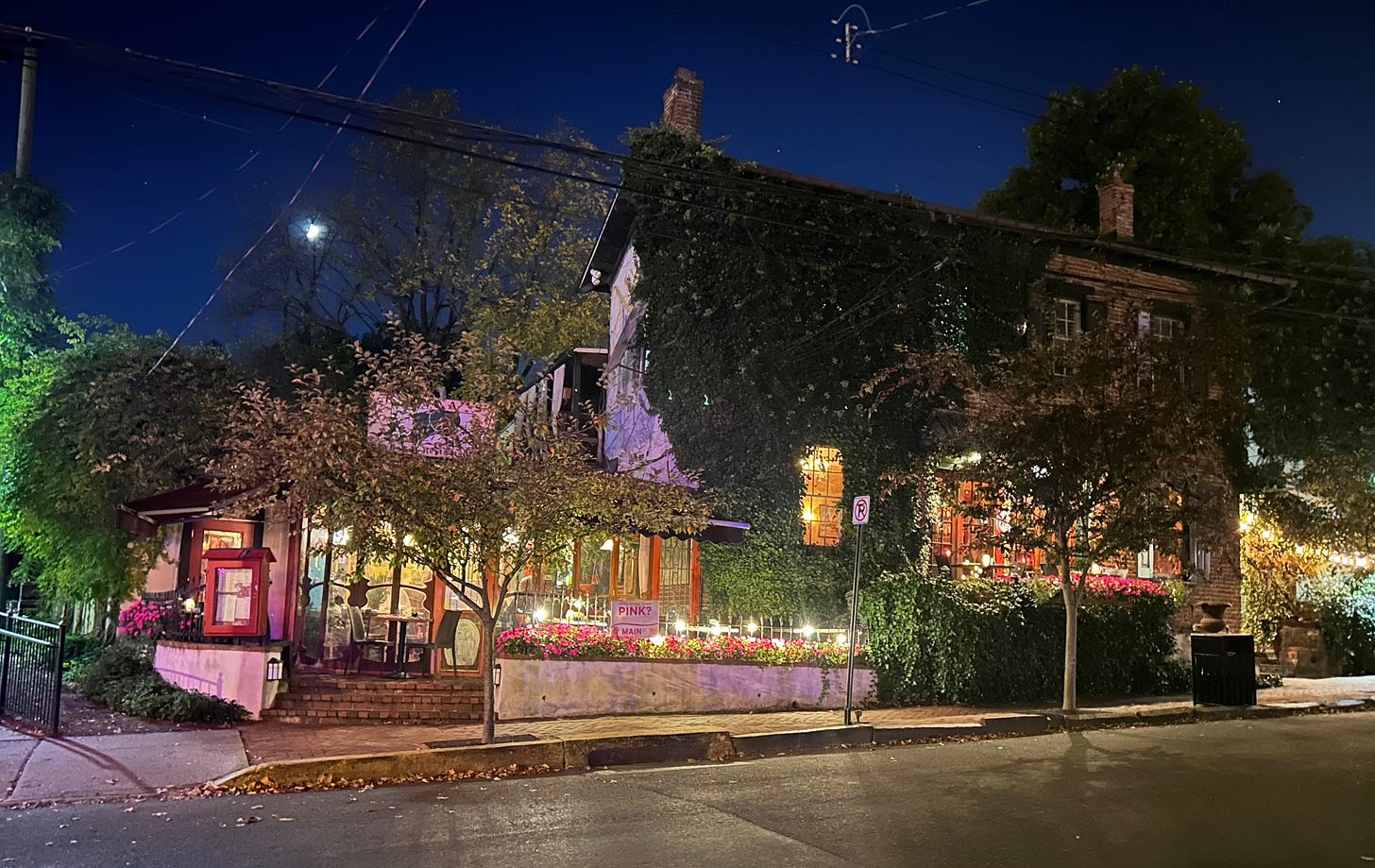I’m about to turn 44, which is a solidly middle-aged number to embody, and I do not know a lot for sure. But I’m almost, almost positive about this one thing: to make room for something you really want, you must get rid of something you want less.
Could I say that in a pithier, wittier way? Perhaps, but my focus is not currently top notch. I’m writing in a chatty cafe, my neck hurts from looking down at the screen, and in lieu of super-powered cold brew coffee (mmmm), I’m drinking herbal tea. In a year in which lots of things people have always said to me turned out to be true, I have “discovered” that afternoon caffeine keeps me up at night. Who fuckin’ knew?
I am somebody who loves a night coffee in order to power through work left until past the very last minute. But in this season of life, I’ve had to (mostly) get rid of afternoon caffeine in order to make room for something I want more: evening sleep.
Some people are birthday people and some people are vigorously, vocally anti-birthday people. I love my birthday, not because it is about me (it isn’t) but because of when it falls. I was born in the season of dead things, and that has always felt right to me. Comforting. It is a beautiful time of year.
I love being a Scorpio, too. Who wouldn’t enjoy a mythology that tells you you’re sexy and powerful? In reality, Scorpios are just people whose biological parents fucked once, very early in the year. I am aware, and I do not care. I like black eyeliner.
The past year of my life has been transformative in ways that matter little to people who don’t know me or love me. The specifics are largely uninteresting, although some aspects have been quite unexpected.
About a year ago, I was presented with a choice that had really been there all along. I was offered the opportunity to face up to and deal with some rather painful memories head-on, honestly, without minimizing or softening or looking away.
I’ve heard this described as looking right into the face of the Medusa, a being with whom I’ve always felt a deep affinity. That feeling was prompted first by the fact that little kids on the bus to school in fifth grade told me my short, curly hair resembled snakes, and that I was monstrously ugly. In retrospect, I was adorable, but I didn’t know that then, so I believed them, sort of.
The more I learned about Medusa - you can call her Medusa or the Medusa, and perhaps classics scholars will argue with you over it, but I won’t - the more I grew fond of her. She was insulted, attacked, unfairly blamed for her own assault, and cast to the margins of society, where she huddled with her sisters in relative safety until Perseus came along to play hero, in his way.
It wasn’t Medusa’s fault that people found their way to her island and looked her right in the face. It wasn’t her fault that they turned to stone. She hadn’t come up with that curse; Athena had cursed her, after discovering that Poseidon had raped Medusa in Athena’s temple.
Blaming the victim has never been so clear-cut, mythologically speaking.
I didn’t know the non-sanitized version of the myth for many, many years. R*pe is n*t a p*pular s*bject in f*fth gr*de Engl*sh cl*ss. But even in my embarrassment and shame - those boys were, after all, using a school lesson to call me ugly - I liked Medusa. I liked that she was angry. I liked that she fought back against the people who called her a monster, even if she didn’t like it.
The overculture teaches most women to never, ever, ever make anybody feel uncomfortable about anything, ever, unless it is an absolute emergency. Medusa couldn’t help but make people feel uncomfortable. It is safe to say they did not find interacting with her to be a pleasant experience, in the few moments before they died. Being murdered by stone sculpture is probably very uncomfortable, particularly when the sculpture is you.
If any of those stone sculptures ever got a chance to come back to life, I never read about it. Perhaps there’s a version of the story where Perseus cuts Medusa’s head off and, after Pegasus and Chrysaor spring from her blood (check your local library), all the stone statues revert back into living, mortal beings. I don’t know. I’d find that kind of disappointing, actually.
In real life, healing happens when and if it happens, sometimes immediately following the moment of hurt, and sometimes many years later. Wounds make themselves available to be treated properly when the time is right, or not at all.
The world of the ancient Greeks does not have a heaven like the one the Christians envision, nor the Buddhist concept of nirvana in which one is released from yearning, from suffering, from desire, from need. When the living figures of Greek mythology visit the Underworld on various quests, they find dead beings who are shades of their living selves. Very few of them - mainly those blessed by familial links to gods - enjoy a blissful eternity in Elysium or the Isles of the Blessed, and only the very worst are tormented forever. The bulk of them - people like me and, perhaps, like you - just kind of hang out, sometimes offering information to the visitors from the regular world above.
Homer, Aristophanes, and others described the Underworld in more detail, but the prevailing concept prior to and even during their eras was rather “murky.” I don’t know what that looks like, and if you say you do, I’ll know you’re lying.
I guess that’s another thing I’m almost totally sure of: not a single person knows for sure what comes next, after all this.
Back to my main point: you’ve got to make room for the new if you really want to welcome it into your life. I’ve been working with this principle quite literally over the past few days, filling big trash bags with things that no longer belong in my home, if ever they did. A palpable lightness emerges when clutter is cleared out. Throw it out, recycle it, donate it, re-gift it, but get rid of objects you don’t want or need. It feels good.
Not everything needs to be replaced. The point of getting rid of something is not just to immediately fill its space with a new object. Sometimes what I want more than the object itself is emptiness. There is something fresh and sweet about the air that fills the spot where it used to be.
True of things, true of relationships, true of habits, true of ways of being in the world. Something seems immovable, a statue heavy in its permanence - and then! And then. It’s gone before you knew it was anyone’s to demolish. Somebody decided it was time. Maybe you decided it was time. Maybe he left. Maybe she said what you couldn’t. Maybe they concluded now was the moment. Either way, it was in your life and now it’s gone. Sweep up the rubble as best you can. You may cough up the dust for years, here and there, less so than you will at first.
Is that what healing is? Is that evolution at work? You decide. ‘Tis the season for death, but also regeneration and renewal.
You’re alive, don’t forget that. You’re alive, flesh and bone, blood and water, a moving, electric, pheromone-rich future pile of dust. Here we are, and here we’ll be, until we’re all gone. Frankly, I think we look fucking great.
***
Thanks for reading. A few ways to support my work are listed below. Take good care.
-Sara






Ah, yes, being born in the season of dead things. We share our birthday tomorrow :)
May the next year bring further insights and uncounted blessings to you.
So consistently brilliant. Never thought of Medusa as cool until I read this.